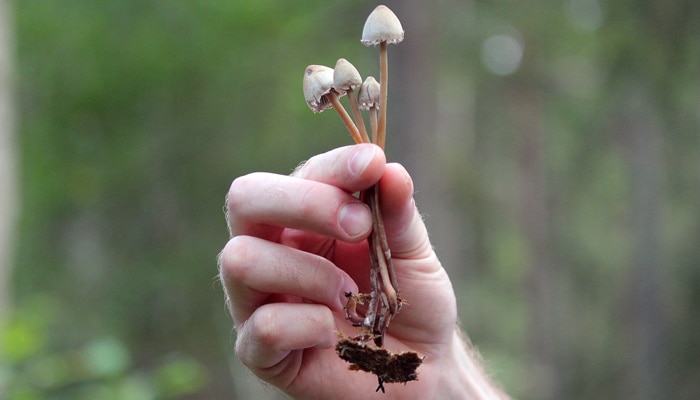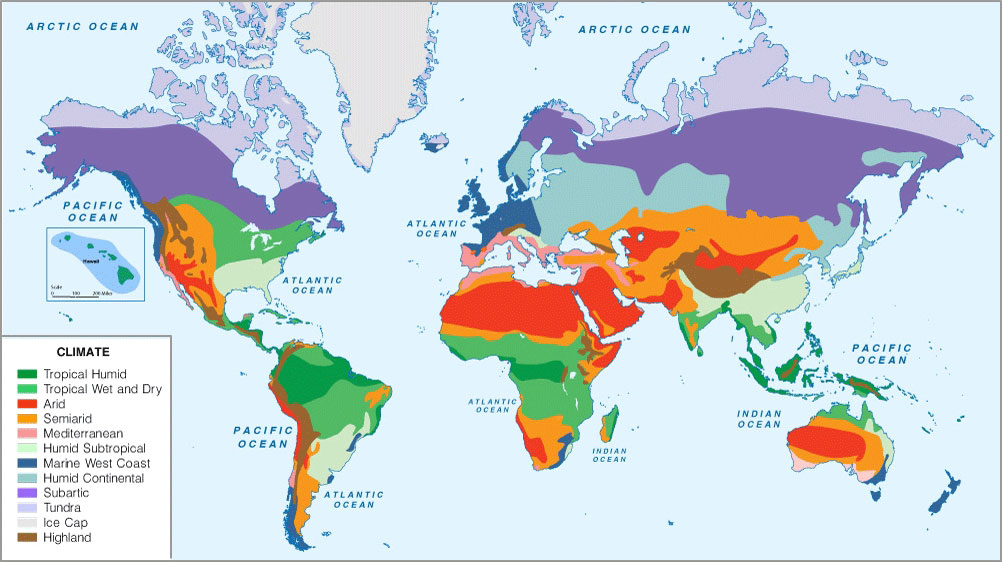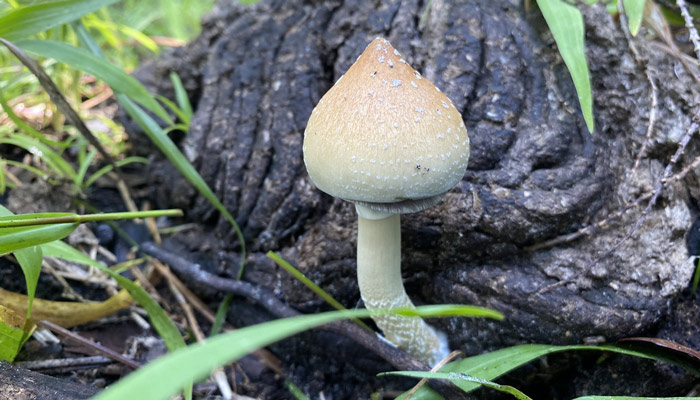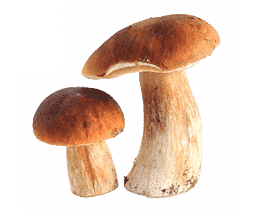Mushroom foraging is an age-old tradition, and for many, the hunt for magic mushrooms is both a passion and a science. Knowing when and where to look is key—cold, dewy mornings often signal the arrival of fresh psilocybin mushrooms.
These fungi thrive in a variety of climates, from damp forests to grassy meadows, and seasonal shifts and environmental conditions often dictate their presence. Whether you’re a curious beginner or an experienced forager adjusting to a new region, understanding the natural habitats of magic mushrooms can make all the difference.
In this guide, we’ll explore how to identify the right climate for foraging, recognize different species, and make the most of your mushroom-hunting adventure.
Mushroom Foraging 101

Source: unsplash by Tania Malréchauffé
Contrary to public opinion, there’s a vibrant culture around hunting magic mushrooms. It dates back to the 60s and 70s when mushroom aficionados made a huge discovery.
They could find shrooms in their backyard and didn’t have to travel to Mexico in search of psilocybin. Increasing knowledge of where to find the Psilocybe semilanceata mushroom species resulted in many youths looking for magic truffles globally.
Today, they’re armed with smartphones and access to many shroom identification forums.
But before you go asking for tips take note that some groups don’t allow you to ask questions. More so because of the traditional secrecy linked to mushroom foraging.
Don’t let the secrecy discourage you, though. Here are some resources to help you deepen your knowledge of psilocybin mushrooms:
Psilocybin Mushrooms of the World by Paul Stamets
The Genus Psilocybe by Gaston Guzman
Magic Mushrooms Around the World by Jochen Gartz
The Field Guide to Mushrooms edited by Gary Lincoff and published by the National Audubon Society
Mushrooms Demystified by David Aurora
Mushrooms by Roger Phillips
Just pick one and get started.
Psilocybin Mushrooms: Climate and Habitat

The growth of psilocybin mushrooms anywhere depends on the local climate and habitat. The eastern half of the United States is made up of two broad climatic regions. Namely: tropical humid and humid tropical wet and dry.
The range of P. cubensis in the United States fits neatly in Florida and along the Gulf Coast. Here it fruits practically throughout the year on “cow pies.”
In contrast, the western half of the continent is made up of arid and semiarid climates. These regions have fewer Psilocybe species. Namely:
P. cyanescens
P. allenii
The west coast, classified as Oceanic, is famous for these fall fruiting wood lovers. In order to thrive, these species need cold nights and dewy mornings.
A large part of Europe (including the UK), southeast Australia, and New Zealand are also considered Oceanic. And the main species that thrive in these areas are the fruiting wood loving species.
Fungi grow in various habitats so shrooms are often commonly found in:
Dung deposits
Grasslands
Woodlands
Gardens
P. cubensis and Panaeolus cyanescens are specifically famous dung loving species. P. semilanceata grows in the pasture, but since it’s saprophytic, it grows from decomposing grass.
The wood lovers such as P. azurescens, P. cyanescens, and P. subaeruginosa, originally sprout on the edges of woodlands but have gladly spread into gardens.
Which One Is it? Poop or Wood?

Source: mushroomobserver
Both, in fact. However, let’s begin with the anatomy of a mushroom.
The primary structure of the fungus is the mycelium, an extensive underground network embedded within the substrate. The mushroom itself serves as the reproductive organ, releasing microscopic spores into the air to facilitate dispersal.
Fungi exhibit a distinctive method of nutrient absorption, effectively digesting their surroundings externally. To clarify, they secrete enzymes that break down organic material in their environment.
The complexity of these enzymes varies by species—some decompose simple compounds, while others process more intricate substances. For instance, certain magic mushrooms have the ability to degrade lignins, the structural components found in wood.
There are broadly three types of magic mushrooms:
Saprophytic mushrooms – They grow on wood or plant-based materials.
Coprophilous fungi – These are the “poo lovers” that grow on animal dung.
Houmous – They grow on well-decomposed plant matter that’s similar to oil.
N.B: Poo lovers like herbivore feces that grow on cowpats, contain grass and other plant matter. All of which has already gone through a long digestive process. This leaves a substrate of simple cellulose that the mushroom can easily gobble up.
Searching for P. cubensis is pretty easy. Just keep an eye out for a large mushroom, it should be visible from a distance. Honestly, the hardest part according to frequent pickers is being the first to find and pick them.
P. semilanceata, on the other hand, isn’t as easy to identify. Not because of its many look-alikes growing in the same area like Mycena.
But because they grow from rotting grass. This means that unless their caps rise above the level of the grass, you may not be able to spot them.
Then there are the potent wood lovers that grow on different types of wood:
P. cyanescens (North America, Europe)
P. subaeruginosa (Australia, New Zealand)
P. azurescens
P. allenii (West Coast of the US)
These Psilocybes are commonly found on the edge of forest trails. Their spores often attach to the boots and clothing of foragers.
They also tend to jump from the wild into urban areas like gardens, growing on wood-chip mulches in temperate climates.
Benefits Of Growing Your Own Magic Mushrooms
Quality Control
One of the significant advantages of growing your own magic mushrooms is the ability to ensure the quality and purity of the mushrooms you consume. By cultivating them yourself, you can choose high-quality spores or mushroom cultures and maintain optimal growing conditions, resulting in healthier and more potent mushrooms.
This eliminates the risk of mistakenly consuming poisonous mushrooms, as you have complete control over the entire cultivation process.
Safety and Avoidance of Poisonous Mushrooms
When foraging for mushrooms in the wild, there is always the risk of misidentification and accidental ingestion of poisonous mushrooms. By growing your own psilocybin mushrooms, you can eliminate this danger entirely.
You’ll have peace of mind knowing that the mushrooms you consume are safe and free from any harmful toxins or substances.
Variety and Personalization
Growing your own magic mushrooms allows you to explore a wide range of psilocybin mushroom strains and species. You can select the specific strains that align with your preferences, desired effects, and personal experiences.
This variety adds an exciting element to your journey, allowing you to discover different nuances and characteristics of each strain.
Cost-Effectiveness
While the initial investment in mushroom cultivation supplies and equipment may be required, growing your own magic mushrooms can ultimately save you money in the long run. Purchasing psilocybin mushrooms from vendors can be expensive, especially for high-quality and rare strains.
By growing them yourself, you can produce a continuous supply of mushrooms at a fraction of the cost, making it a cost-effective and sustainable option.
Connection with Nature and Personal Growth
Engaging in the process of growing magic mushrooms can be a deeply immersive and meditative experience. It provides an opportunity to connect with nature, observe the life cycle of the mushrooms, and develop a greater appreciation for the natural world.
The patience, care, and attention required in cultivating mushrooms can also promote personal growth, mindfulness, and a sense of accomplishment.
Educational and Empowering
Cultivating your own magic mushroom offers a unique learning experience. It allows you to delve into the fascinating world of mycology, understanding the growth patterns, life cycles, and environmental conditions that support mushroom cultivation.
This knowledge empowers you to take control of your own psychedelic journey and make informed decisions about the mushrooms you consume.
Growing your own magic mushrooms provides numerous benefits, including quality control, safety, variety, cost-effectiveness, connection with nature, personal growth, and educational empowerment.
Summary
Mushroom foraging is an ancient practice that requires knowledge of the right timing, environmental conditions, and species-specific habitats. Magic mushrooms, or psilocybin-containing fungi, thrive in various climates across the world, with different species adapting to specific regions.
Magic mushrooms also differ in their preferred substrates: saprophytic species thrive on wood and plant material, coprophilous fungi grow on animal dung, and humus-loving varieties favor decomposed organic matter. Understanding their anatomy and environmental preferences is key to identifying them correctly.
Successful mushroom foraging relies on recognizing ideal conditions, familiarizing oneself with local species, and following responsible foraging practices to ensure both safety and sustainability.
Ready to start your magic mushroom foraging journey? Learn more about our products, identifying their species, ideal habitats, and responsible foraging at Mind Mend! Contact us now.





